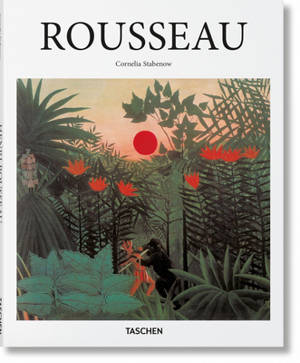
- Afhalen na 1 uur in een winkel met voorraad
- Gratis thuislevering in België vanaf € 30
- Ruim aanbod met 7 miljoen producten
- Afhalen na 1 uur in een winkel met voorraad
- Gratis thuislevering in België vanaf € 30
- Ruim aanbod met 7 miljoen producten
Omschrijving
Henri Rousseau (1844-1910) was a clerk in the Paris customs service who dreamed of becoming a famous artist. At the age 49, he decided to give it a try. At first, Rousseau's bright, bold paintings of jungles and exotic flora and fauna were dismissed as childish and simplistic, but his unique and tenacious style soon won acclaim. After 1886, he exhibited regularly at Paris's prestigious Salon des Indépendants, and in 1908 he received a legendary banquet of honor, hosted by Picasso.
Although best known for his tropical scenes, Rousseau, in fact, never left France, relying on books and magazines for inspiration, as well as trips to natural history museums and anecdotes from returning military acquaintances. Working in oil on canvas, he tended toward a vibrant palette, vivid rendering, as well as a certain lush, languid sensuality as seen in the nude in the jungle composition The Dream.
Today, "Rousseau's myth" is well established in art history, garnering comparison with such other post-Impressionist masters as Cézanne, Matisse, and Gauguin. In this dependable TASCHEN introduction, we explore the makings of this late-blooming artist and his legacy as an unlikely hero of modernism.
Specificaties
Betrokkenen
- Auteur(s):
- Uitgeverij:
Inhoud
- Aantal bladzijden:
- 96
- Taal:
- Engels
- Reeks:
Eigenschappen
- Productcode (EAN):
- 9783836570763
- Verschijningsdatum:
- 10/04/2018
- Uitvoering:
- Hardcover
- Formaat:
- Genaaid
- Afmetingen:
- 213 mm x 262 mm
- Gewicht:
- 566 g

Alleen bij Standaard Boekhandel
Beoordelingen
We publiceren alleen reviews die voldoen aan de voorwaarden voor reviews. Bekijk onze voorwaarden voor reviews.











